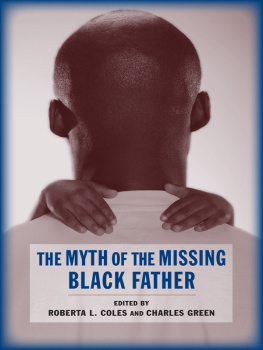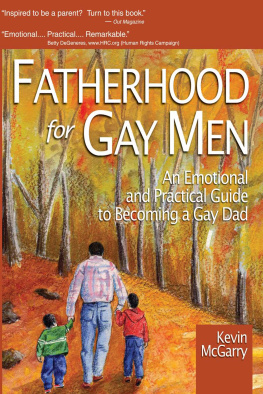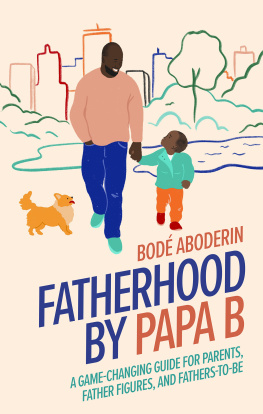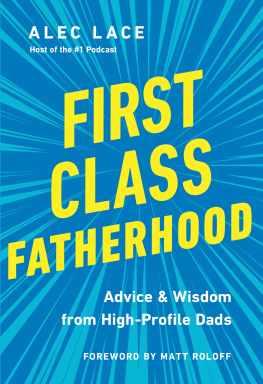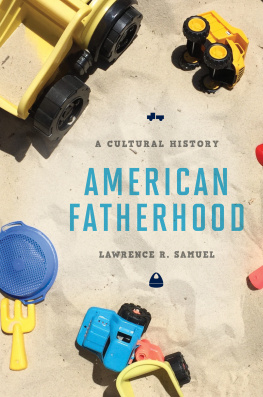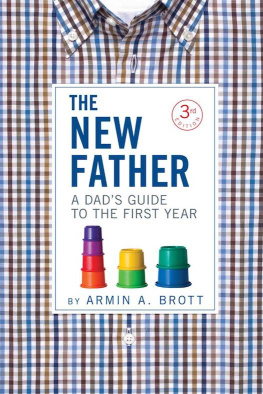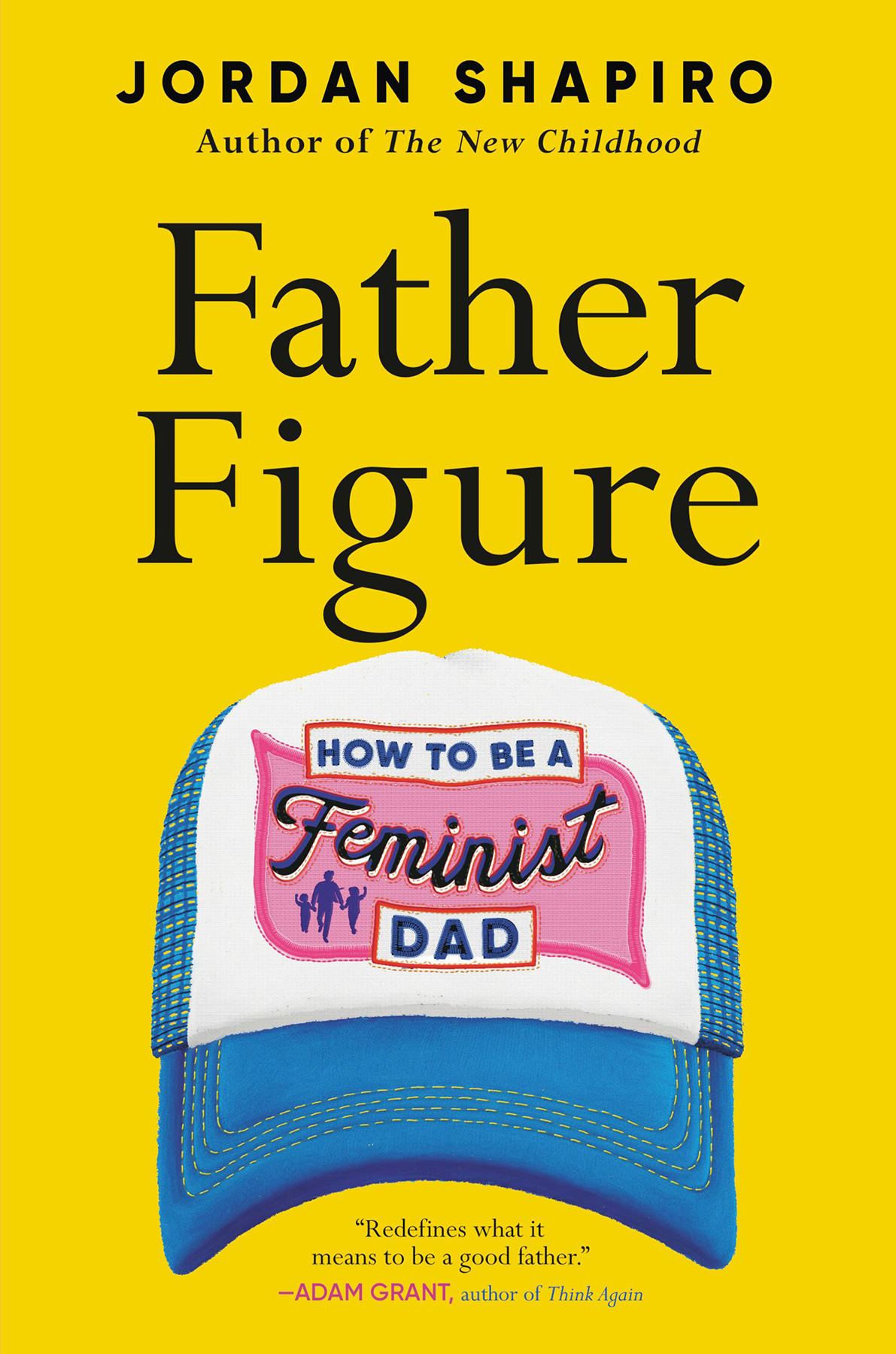He was not wrong, of course, but he joined all the woke white men who set their privilege outside themselvesas in, I know better than to be ignorant or defensive about my status in our world. Never mind that that capacity to set himself outside the pattern of white male dominance is the privilege. Theres no outrunning the kingdom, the power, and the glory.
MONDAY, JANUARY 7, 2019, 7:35 A.M. : I opened my eyes in a Nashville hotel room. I was tired from a little too much hot chicken and country music the night before. I wanted to go back to sleep, but my phone kept vibrating against the bedside table. Text messages from my mother: Was happy to see your book in the Wall Street Journal. But I didnt like the review. It was mean. I read Moms words aloud to my partner, Amanda, who was lying in bed next to me, scrolling through her own morning notifications. She had a similar message from her sister about the same article.
My book, The New Childhood: Raising Kids to Thrive in a Connected World, had been published the previous week and I was in Nashville to promote it. We made a whole weekend of it, traveling with friends from Denmark who wanted to see Music City, USA, before their work visas expired. We planned to meet the Danes for biscuits, fried chicken, and sausage gravy at Monellsundoubtedly the best breakfast in Americain a couple of hours, but I needed to see that newspaper now!
Amanda and I got dressed quickly and took the elevator down to the lobby. The Noelle hotel is a perfect example of 1930s Art Deco architecture, with super-high ceilings, arched windows, polished brass fixtures, and shiny pink Tennessee marble walls. Its located just off Printers Alley, a historic district that was once home to two newspapers, ten print shops, and thirteen publishersa good place to stay if youre a geeky writer, preoccupied with history. We found the Wall Street Journal near the espresso machine, on the hipster coffee counter, and sat down to read it on one of the oversize blue sofas.
At first, I was thrilled when we flipped to the opinion page and I saw my books cover, pictured in full color on the top left corner. This is the kind of placement authors long for. But then I read the review. The first sentence said, When Jordan Shapiro and his wife separated several years ago, their sons were 4 and 6 years old. The author led with my divorce and in the following paragraphs she did everything she could to cast me in the role of the overpermissive, too-cool, deadbeat dad. Trashing my provideo game argument for more family screen time, she wrote, He was all too happy to indulge his sons, even if their mother, apparently, was not. For the record, neither my kids nor my ex-wife understands where this journalist got the idea that we have a tense coparenting relationship. We dont, but thats not the point. The real issue is the implication that a divorced dad cant know much about parenting. My doctorate degree in depth psychology, as well as all my credentials as a recognized expert in child development and education were rendered completely irrelevant for this writer. All because she believed that a good father should be the head of a traditional heterosexual household.
Im not Ward Cleaver (Leave It to Beaver), Phil Dunphy (Modern Family), or Howard Cunningham (Happy Days). Im not even Mike Brady (The Brady Bunch). Im a single dad, sharing half-time custody of my sons. Apparently, a lot of people think I live in some sort of velvet-upholstered playboy bachelor pad, where lounge music blasts from audiophile loudspeakers and children have no boundaries. As I traveled the United States, promoting a parenting book, I discovered that many folks immediately jumped to the conclusion that I cant possibly know whats in my own childrens best interest because Im divorced. This prejudice felt especially hurtful to me. I had spent years writing articles, op-eds, and a book full of personal stories about my experience being a dad. Fatherhood was at the core of my identity. My relationship with my children not only defined my career, but also shaped my sense of self-worth. First and foremost, I saw myself as a father figure. It had never occurred to me that being divorced might preemptively exclude me from fitting in to the prevalent cultural understanding of what it means to be a good father.
Over the course of the next year, the book received mostly glowing reviews, but the divorced-dad stigma was always present. I started to see it everywhere I looked: throughout pop culture, and on both sides of the partisan political spectrum. For example, in April 2019 Michelle Obama was speaking in London when she said, Sometimes you spend the weekends with divorced dad and that feels like its fun, but then you get sick. The former first lady was criticizing Donald Trump. Thats what Americas going through. Were kind of living with divorced dad right now. I was shocked that she would so brazenly undermine the millions of unmarried fathers who are trying to do whats best for their children.
According to the Pew Research Center, the share of unmarried parents who are fathers has more than doubled over the past 50 years. Now, 29% of all unmarried parents who reside with their children are fathers, compared with just 12% in 1968. And research about how the gender of solo parents impacts children remains inconclusive, maybe because its too difficult to establish comprehensive criteria. For example, when it comes to academic performance, children of solo fathers tend to get better grades and have higher high-school graduation rates, while solo moms tend to adhere to more so-called traditional routines, such as family dinner. One set of outcomes is not necessarily better than the other. What researchers can say for sure is that children are most likely to thrive in households with loving, supportive, dedicated parentssingle or coupled; male, female, or gender nonconforming. Theres no evidence to suggest that dysfunctional female-headed households are better than dysfunctional male-headed households, nor that gender identity or marital status has any correlation with But what is the right kind of home life? What is a strong family? Its not clear.



